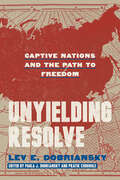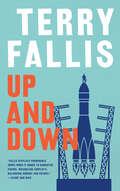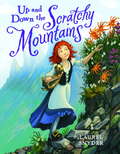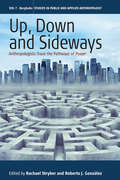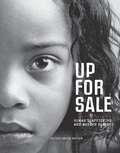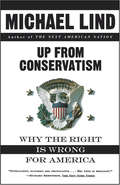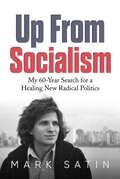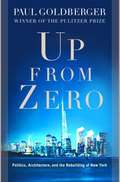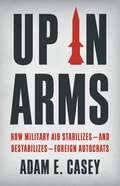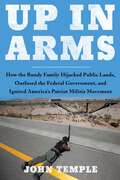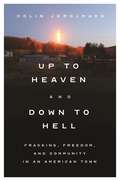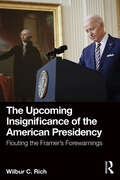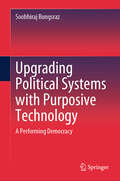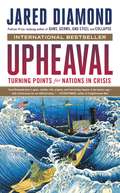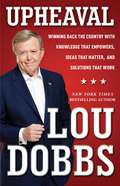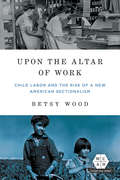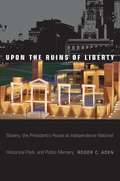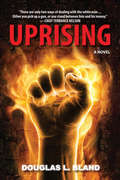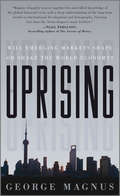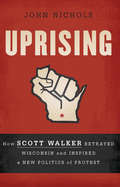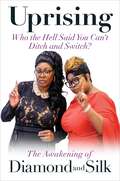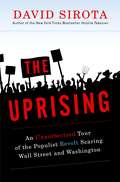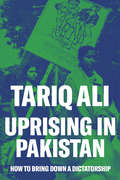- Table View
- List View
Unyielding Resolve: Captive Nations and the Path to Freedom
by Lev E. DobrianskyDr. Lev E. Dobriansky provides a unique, first-person perspective on Russian imperialist behavior in the twentieth century, arguing that even in the Soviet era, Russian statecraft was heavily shaped by traditional imperialist ideology—led by Moscow's self-image as the dominant Eurasian imperial power. This theory was at the heart of Dobriansky's commitment to warning against global Soviet aggression and liberating peoples under Russian repression, culminating in the Captive Nations Resolution (PL 86-90), the US law designating Captive Nations Week and the issuance of a presidential proclamation every July. This resolution played a major role in shaping US policies toward victims of Russian imperial domination and today continues as an acknowledgment of people and nations living under repressive regimes. The collapse of the Soviet Union and subsequent developments, including Russia's 2014 and 2022 unprovoked invasions of independent Ukraine, have validated the author's view that Russian imperialism was the major determinant of its statecraft. The book is the first to document the history of Captive Nations and the passage of PL 86-90. It is a potent first-person account detailing the role of nationalism in the strong resistance to Moscow's efforts to maintain imperial domination over non-Russian peoples, in the Soviet era and beyond.
Up and Down
by Terry FallisThe author of the Stephen Leacock Medal-winning The Best Laid Plans brings his trademark humour and sharp storytelling to a new novel set in the high-stakes world of a global public relations agency. On his first day at Turner King, David Stewart quickly realizes that the world of international PR (affectionately, perhaps ironically, known as "the dark side") is a far cry from his previous job on Parliament Hill. For one, he missed the office memo on the all-black dress code; for another, there are enough acronyms and jargon to make his head spin. Before he even has time to find the washroom, David is assigned a major project: devise a campaign to revitalize North America's interest in the space program - maybe even show NASA's pollsters that watching a shuttle launch is more appealing than going out for lunch with friends. The pressure is on, and before long, David finds himself suggesting the most out-of-this-world idea imaginable: a Citizen Astronaut lottery that would send one Canadian and one American to the International Space Station. Suddenly, David's vaulted into an odyssey of his own, navigating the corporate politics of a big PR agency; wading through the murky but always hilarious waters of Canada-U.S. relations; and trying to hold on to his new job while still doing the right thing. Equal parts clever and satirical, thoughtful and affecting, Up and Down is Terry Fallis at his best, confirming his status as a Canadian literary star.
Up and Down the Scratchy Mountains
by Laurel SnyderLucy, a milkmaid, and her best friend Wynston, a reluctant prince, go in search of information about Lucy's missing mother--even though Wynston is supposed to be searching for a proper princess to marry.
Up, Down, and Sideways: Anthropologists Trace the Pathways of Power
by Rachael Stryker Roberto J. GonUsing a "vertical slice" approach, anthropologists critically analyze the relationship between undemocratic uses and abuses of power and the survival of the human species. The contributors scrutinize modern institutions in a variety of regions-from Russia and Mexico to South Korea and the U.S. Up, Down, and Sideways is an ethnographic examination of such phenomena as debtculture, global financial crises, food insecurity, indigenous land and resource appropriation, the mismanagement of health care, andcorporate surrogacy within family life. With a preface by Laura Nader, this isessential reading for anyone seeking solid theories and concrete methods to inform activist scholarship.
Up for Sale: Human Trafficking and Modern Slavery
by Alison Marie Behnke"Trafficking thrives in the shadows. And it can be easy to dismiss it as something that happens to someone else, somewhere else. But that is not the case. Trafficking is a crime that involves every nation on earth, and that includes our own."—US secretary of state Hillary Rodham Clinton, 2009 Human trafficking is as old as slavery and continues to be practiced in the modern world. Victims of human traffickers include workers in restaurants and in garment factories, maids and nannies in the homes of wealthy families, child sex workers, beggars on the street, boy soldiers, even infants kidnapped for foreign adoptions. Women and children are more likely to be coerced or seized than men and boys, especially if they are poor and uneducated. Traffickers sell their victims for their bodies or for their labor and reap an enormous profit. Human trafficking is estimated to be a $30 to $45 billion industry on an annual basis, rivaling weapons and drug trafficking as one of the most profitable criminal undertakings in the world. Up for Sale takes a hard look at human trafficking, identifying perpetrators and telling the stories of victims through their own words. You'll discover why some people become vulnerable to trafficking and you'll read about what their lives are like on a daily basis. You'll also meet some of the courageous individuals and organizations working to free people from lives in bondage so that, in the words of US president Barack Obama, each person can "forge a life equal to [their] talents and worthy of [their] dreams."
Up from Conservatism
by Michael LindFor nearly a decade, Michael Lind worked closely as a writer and editor with the intellectual leaders of American conservatism. Slowly, he came to believe that the many prominent intellectuals he worked with were not the leaders of the conservative movement but the followers and apologists for an increasingly divisive and reactionary political strategy orchestrated by the Republican party. Lind's disillusionment led to a very public break with his former colleagues on the right, as he attacked the Reverend Pat Robertson for using anti-Semitic sources in his writings. In Up From Conservatism, this former rising star of the right reveals what he believes to be the disturbing truth about the hidden economic agenda of the conservative elite. The Republican capture of the U. S. Congress in 1994 did not represent the conversion of the American public to conservative ideology. Rather, it marked the success of the thirty-year-old "southern strategy" begun by Barry Goldwater and Richard Nixon. From the Civil War to the civil rights revolution, the southern elite combined a low-wage, low-tax strategy for economic development with a politics of demagogy based on race-baiting and Bible-thumping. Now, Lind maintains, the economic elite that controls the Republican party is following a similar strategy on a national scale, using their power to shift the tax burden from the rich to the middle class while redistributing wealth upward. To divert attention from their favoritism toward the rich, conservatives play up the "culture war," channeling popular anger about falling real wages and living standards away from Wall Street and focusing it instead on the black poor and nonwhite immigrants. The United States, Lind concludes, could use a genuine "one-nation" conservatism that seeks to promote the interests of the middle class and the poor as well as the rich. But today's elitist conservatism poses a clear and present danger to the American middle class and the American republic.
Up from Liberalism
by William F. Buckley Jr.A stinging critique not only of the principles of Liberalism -- or, perhaps better, the "no-principles" of Liberalism -- but of the behavior of some of Liberalism's principal architects.
Up From Liberalism
by Senator Barry M. Goldwater William F. Buckley Jr.William Frank Buckley Jr.'s third book, originally published in 1959, is an urbane and controversial attack on the manners and meaning of American Liberalism in the 1950s. His thesis is that the leading American liberals can be shown, in their speeches and statements, in the tacit premises that underlie their words and deeds, to be suffering from a long, but definable list of social and philosophical prejudices. "Up From Liberalism" examines the root assumptions of the Liberalism of his era and asks the startling question: do the actions of prominent liberalism derive from the attributes of Liberalism?"This book of mind and heart, wit and eloquence, by the chief spokesman for the young conservative revival in this country, must be read and understood, to understand what is going on in America."--Senator Barry Goldwater"A guide for Americans who want to stay free in a country where pressures against individual freedom are coming from every direction."--Charleston Nines & Courier"He is at top form...clear and penetrating...A slashing attack against the thinking of today's pseudo-liberals."--Colorado Springs Gazette Telegraph"The most exciting book of the Fall."--New York Mirror"Mr. Buckley is one of the most articulate of the critics of today's liberalism and deserves to be heard."--Washington Star"Buckley brilliantly excoriates a philosophy he calls liberalism."--Newsweek"A skilled debater, a trenchant stylist...a man of agile and independent mind...He belongs in the great American tradition of protest and he deserve his audience."--New York Herald Tribune
Up From Socialism: My 60-Year Search for a Healing New Radical Politics
by Mark SatinAn essential introduction to the visionary, beyond-left-and-right political activism of the last 60 years, and a deeply honest insider account of why those activists have—so far—fallen short.&“I appreciate that Satin is willing to be so candid. It helps us all learn. And he writes in a way that touches the soul.&” —Christa Slaton, First platform coordinator for the U.S. Green Party movement, and co-editor of the book Transformational Politics: Theory, Study, and Practice In a gripping first-person narrative that reads like a novel, using his own experiences as a lens, Mark Satin tells the story of three generations of thinkers and activists who tried—and are still trying—to create a post-socialist, post-conservative, visionary and healing new politics for the U.S. In this book, Satin shows that the increasingly militant movements of the Sixties drove many young people away—and into a search for a political system and world that could work for everyone. He looks at initiatives and organizations that over the next 30 years tried to further that search, such as the New World Alliance and the early U.S. Green Party movement. Then he illuminates the 21st century turn to &“radical centrist&” and &“transpartisan&” political initiatives. Each chapter begins with a brief, context-setting introduction. Throughout the book are intense, blow-by-blow accounts of organization- and movement-building, as well as brief glimpses at over 40 often underappreciated visionary books. And always there are deeply honest accounts of Satin&’s and other activists&’ often shaky relationships with colleagues, family, and lovers—because getting healing politics right cannot be divorced from getting personal and interpersonal behavior right. You will enjoy watching Satin&’s encounters with civil rights militant Hardy Frye, Weather Underground terrorist Mark Rudd, environmental activist Paul Hawken, &“beyond GNP&” economic thinker Hazel Henderson, futurists John Naisbitt and Alvin Toffler, Nobel Peace Prize nominee Gene Sharp, Aquarian Conspiracy author Marilyn Ferguson, critical race theory co-creator Derrick Bell, radical centrist author John Avlon, and more. Nobody, least of all Satin, comes across as all-wise here, and long before this subtle and courageous book ends you will realize that a truly visionary and healing politics can only be built if we&’re willing to address all the behavioral, intellectual, organizational, and attitudinal issues this book raises.
Up From Zero: Politics, Architecture, and the Rebuilding of New York
by Paul GoldbergerInUp from Zero,Paul Goldberger, winner of the Pulitzer Prize, tells the inside story of the quest to rebuild one of the most important symbolic sites in the world, the sixteen acres where the towers of the former World Trade Center stood. A story of power, politics, architecture, community, and culture,Up from Zerotakes us inside the controversial struggle to create and build one of the most challenging urban-design projects in history. What should replace the fallen towers? Who had the courage and vi...
Up in Arms: How Military Aid Stabilizes—and Destabilizes—Foreign Autocrats
by Adam E CaseyAn &“extraordinary…must-read&” (Steven Levitsky, New York Times–bestselling coauthor of How Democracies Die) look at how support from foreign superpowers propped up—and pulled down—authoritarian regimes during the Cold War, offering lessons for today&’s great power competition Throughout the Cold War, the United States and Soviet Union competed to prop up friendly dictatorships abroad. Today, it is commonly assumed that this military aid enabled the survival of allied autocrats, from Taiwan&’s Chiang Kai-shek to Ethiopia&’s Mengistu Haile Mariam. In Up in Arms, political scientist Adam E. Casey rebuts the received wisdom: aid to autocracies often backfired during the Cold War. Casey draws on extensive original research to show that, despite billions poured into friendly regimes, US-backed dictators lasted in power no longer than those without outside help. In fact, American aid often unintentionally destabilized autocratic regimes. The United States encouraged foreign regimes to establish strong, independent armies like its own, but those armies often went on to lead coups themselves. By contrast, the Soviets promoted the subordination of the army to the ruling regime, neutralizing the threat of military takeover. Ultimately, Casey concludes, it is subservient militaries—not outside aid—that help autocrats maintain power. In an era of renewed great power competition, Up in Arms offers invaluable insights into the unforeseen consequences of overseas meddling, revealing how military aid can help pull down dictators as often as it props them up.
Up in Arms: How the Bundy Family Hijacked Public Lands, Outfoxed the Federal Government, and Ignited America's Patriot Militia Movement
by John Temple"IT'S TIME! They have my cattle and now they have one of my boys. Range War begins tomorrow at Bundy Ranch." These words, pounded out on a laptop at Cliven Bundy's besieged Nevada ranch on April 6, 2014, ignited a new American revolution. Across the country, a certain type of citizen snapped to attention: This was the flashpoint they'd been waiting for, a chance to help a fellow American stand up to a tyrannical and corrupt federal government. Up in Arms chronicles how an isolated clan of desert-dwelling Mormons became the guiding light—and then the outright leaders—of America's Patriot movement. The nation was riveted in 2014 when hundreds of Bundy supporters, many of them armed, forced federal agents to abandon a court-ordered cattle roundup. Then in 2016, Ammon Bundy, one of Cliven's 13 children, led a 41-day armed takeover of the Malheur National Wildlife Refuge in Oregon. Those events and the subsequent shootings, arrests, and trials captured headlines, but they're just part of a story that has never been fully told. John Temple, award-winning journalist and author of American Pain, gives readers an unprecedented and objective look at the real people and families at the heart of these highly publicized standoffs. Up in Arms offers a propulsive narrative populated by rifle-toting cowboys, apocalyptic militiamen, undercover infiltrators, and the devout and charismatic Bundys themselves. Neither mainstream nor conservative media outlets have contextualized the religious, political, environmental, and economic factors that set the stage for these events. Up in Arms provides a framework for understanding this diverse collection of American rebels who believe government overreach justifies the taking up of arms.
Up to Heaven and Down to Hell: Fracking, Freedom, and Community in an American Town
by Colin JerolmackA riveting portrait of a rural Pennsylvania town at the center of the fracking controversyShale gas extraction—commonly known as fracking—is often portrayed as an energy revolution that will transform the American economy and geopolitics. But in greater Williamsport, Pennsylvania, fracking is personal. Up to Heaven and Down to Hell is a vivid and sometimes heartbreaking account of what happens when one of the most momentous decisions about the well-being of our communities and our planet—whether or not to extract shale gas and oil from the very land beneath our feet—is largely a private choice that millions of ordinary people make without the public's consent.The United States is the only country in the world where property rights commonly extend "up to heaven and down to hell," which means that landowners have the exclusive right to lease their subsurface mineral estates to petroleum companies. Colin Jerolmack spent eight months living with rural communities outside of Williamsport as they confronted the tension between property rights and the commonwealth. In this deeply intimate book, he reveals how the decision to lease brings financial rewards but can also cause irreparable harm to neighbors, to communal resources like air and water, and even to oneself.Up to Heaven and Down to Hell casts America’s ideas about freedom and property rights in a troubling new light, revealing how your personal choices can undermine your neighbors’ liberty, and how the exercise of individual rights can bring unintended environmental consequences for us all.
The Upcoming Insignificance of the American Presidency: Flouting the Framer's Forewarnings
by Wilbur C. RichThis new text analyzes the development of the presidency as the dominant political institution in the United States and raises questions about its future relevance. In this history of the U.S. executive branch from the framing of the Constitution to the Biden administration, author Wilbur C. Rich illuminates the transformation of the presidential role by a variety of extra-constitutional, non-legal forces, technology, and social changes.The book highlights how some presidents nevertheless have managed to maintain relevancy and dominance by adapting to these changes or by introducing changes of their own. For undergraduate students and researchers of presidential history and American political development, this expansive historical overview of the executive branch in America makes a strong case that the significance of the American presidency has declined dramatically—and perhaps irrevocably—in the modern presidency.
Upgrading Political Systems with Purposive Technology: A Performing Democracy
by Soobhiraj BungsrazThis book presents a framework for designing and implementing technologies to reduce risks in parliamentary decision-making, leading to the emergence of e-politics. It emphasizes adaptable virtual systems and problem-solving over predefined solutions, fostering multi-helix engagement among cross-functional teams. These teams collaborate to develop strategic, tactical, and operational solutions for citizens, elected parliamentarians, and organizations such as the UN. The book underscores the importance of risk identification, mitigation, and communication for e-political system safety. The framework leverages technology to create an e-democracy, enhancing the productivity of parliamentarians and promoting democratic sustainability. It builds on the theoretical framework of system engineering, aiming to avoid the pitfalls of previous generations' promises and instead focusing on continuous improvement through a people-centric system. The book introduces the PI App as a purposive technology that aids in implementing these ideas. By promoting an ever-improving parliament and parliamentarians, the framework aims to achieve higher productivity in decision-making roles and evolve practical e-democracy. It highlights the need for a Virtuous Cycle for continuous improvement in strategic decisions for national investment, ultimately leading to a people-centric system. The book envisions a future where technology plays a crucial role in ensuring democratic sustainability and enhancing the effectiveness of parliamentary decision-making.
Upheaval: Turning Points for Nations in Crisis
by Jared DiamondA "riveting and illuminating" (Yuval Noah Harari) new theory of how and why some nations recover from trauma and others don't, by the Pulitzer-Prize-winning author of the landmark bestsellers Guns, Germs, and Steel and Collapse. In his international bestsellers Guns, Germs and Steel and Collapse, Jared Diamond transformed our understanding of what makes civilizations rise and fall. <P><P>Now, in his third book in this monumental trilogy, he reveals how successful nations recover from crises while adopting selective changes -- a coping mechanism more commonly associated with individuals recovering from personal crises. <P><P>Diamond compares how six countries have survived recent upheavals -- ranging from the forced opening of Japan by U.S. Commodore Perry's fleet, to the Soviet Union's attack on Finland, to a murderous coup or countercoup in Chile and Indonesia, to the transformations of Germany and Austria after World War Two. <P><P>Because Diamond has lived and spoken the language in five of these six countries, he can present gut-wrenching histories experienced firsthand. These nations coped, to varying degrees, through mechanisms such as acknowledgment of responsibility, painfully honest self-appraisal, and learning from models of other nations. Looking to the future, Diamond examines whether the United States, Japan, and the whole world are successfully coping with the grave crises they currently face. Can we learn from lessons of the past? <P><P>Adding a psychological dimension to the in-depth history, geography, biology, and anthropology that mark all of Diamond's books, Upheaval reveals factors influencing how both whole nations and individual people can respond to big challenges. The result is a book epic in scope, but also his most personal book yet. <P><b>A New York Times Bestseller</b>
Upheaval
by Lou DobbsBestselling author and host of Lou Dobbs Tonight offers his illuminating views on some of our nation's most intractable problems. In 2012, Lou Dobbs Tonight celebrated its one-year anniversary and a steadily growing viewership. Now, expanding on the "Chalk Talks" segment from his popular program, Dobbs gives his take on some of the country's most pressing problems--including provocative topics no one is talking about--and what might be done to address them. Covering our challenges in the areas of debt, the failure of our transportation infrastructure, the encroachment of the federal government, the power and size of public sector unions, the problems of business, big banks, big government, and more, Axis of Upheaval arms us with valuable information, as only Lou Dobbs can deliver it: with his frank, intelligent, and witty style.
Upon the Altar of Work: Child Labor and the Rise of a New American Sectionalism (Working Class in American History #311)
by Betsy WoodRooted in the crisis over slavery, disagreements about child labor broke down along sectional lines between the North and South. For decades after emancipation, the child labor issue shaped how Northerners and Southerners defined fundamental concepts of American life such as work, freedom, the market, and the state. Betsy Wood examines the evolution of ideas about child labor and the on-the-ground politics of the issue against the backdrop of broad developments related to slavery and emancipation, industrial capitalism, moral and social reform, and American politics and religion. Wood explains how the decades-long battle over child labor created enduring political and ideological divisions within capitalist society that divided the gatekeepers of modernity from the cultural warriors who opposed them. Tracing the ideological origins and the politics of the child labor battle over the course of eighty years, this book tells the story of how child labor debates bequeathed an enduring legacy of sectionalist conflict to modern American capitalist society.
Upon the Ruins of Liberty: Slavery, the President's House at Independence National Historical Park, and Public Memory
by Roger C. AdenThe 2002 revelation that George Washington kept slaves in his executive mansion at Philadelphia's Independence National Historical Park in the 1790s prompted an eight-year controversy about the role of slavery in America's commemorative landscape. When the President's House installation opened in 2010, it became the first federal property to feature a slave memorial. In Upon the Ruins of Liberty, Roger Aden offers a compelling account that explores the development of this important historic site and how history, space, and public memory intersected with contemporary racial politics. Aden constructs this engrossing tale by drawing on archival material and interviews with principal figures in the controversy-including historian Ed Lawler, site activist Michael Coard, and site designer Emanuel Kelly. Upon the Ruins of Liberty chronicles the politically-charged efforts to create a fitting tribute to the place where George Washington (and later, John Adams) shaped the presidency while denying freedom to the nine enslaved Africans in his household. From design to execution, the plans prompted advocates to embrace stories informed by race, and address difficulties that included how to handle the results of the site excavation. As such, this landmark project raised concerns and provided lessons about the role of public memory and how places are made to shape the nation's identity.
Uprising: A Novel
by Douglas L. BlandA surprise attack on the nation’s military bases and power stations sends the Armed Forces scrambling. When impoverished, disheartened, poorly educated, but well-armed aboriginal young people find a modern revolutionary leader, they rally with a battle cry of "Take Back the Land!" Theirs is a fight to right the wrongs inflicted on them by "the white settlers."They know they are too small to take on the entire country, but they don’t need to. Over a few tension-filled days as the battles rages over abundant energy resources, the frantic prime minister can only watch as the insurrection paralyzes the country. But when energy-dependent Americans discover the southward flow of Canadian hydroelectricity, oil, and natural gas is halted, they do not remain passive.Although none of the country’s leaders see it coming, the shattering consequences unfold with the same plausible harmony by which quiet aboriginal protests decades ago became the eerie premonitions of today’s stand-offs and "days of action."
Uprising
by George MagnusEmerging markets are big news. But after the financial crisis, what does the future really hold for them? And what does this future mean for global business?George Magnus, one of the world's most respected economic analysts, is your guide through the challenges and opportunities for emerging markets and those doing business in them.This magisterial book looks in detail at China and India - the big players - and also less hyped but crucial markets, including Eastern European countries and Turkey. Magnus takes in his sweep everything from commodity prices to climate change, and from comparative advantage to demographic to provide a compelling analysis of what the future might look like - not just for emerging markets, but for investors, businesses and economies everywhere.Uprising is a must-read for anyone who cares about the future of the global economy.
Uprising: How Scott Walker Betrayed Wisconsin and Inspired a New Politics of Protest
by John NicholsThe protest movement that captivated the nation and paved the path for Occupy Wall Street. More than 100,000 public employees, teachers, students, and their allies descended on the capital in Madison, Wisconsin after Governor Scott Walker announced his plan to eliminate the right of public sector employees to unionize. The struggle (and the Democratic caucus' escape to Indiana in order to prevent a quorum from being reached) elicited extensive national media coverage and debate-as well as enormous grassroots support for protestors. Uprising provides an anatomy of the event and its implications for the political future of the nation. As state legislatures across the US (in Ohio and New Hampshire, to name a few) take up union busting measures, Nichols shows how the Wisconsin case is a blueprint for progressives around America who've had enough. He also explores how Wisconsin protesters organized and inspired the Occupy Wall Street movement.
Uprising: Who the Hell Said You Can't Ditch and Switch? -- The Awakening of Diamond and Silk
by Diamond Silk“There were these two women, these two beautiful, wonderful women, and I said, ‘Well, let me check it out.’ It took me about two seconds to say, ‘stardom.’” – DONALD J. TRUMP “Diamond and Silk are a national treasure, and their astonishing, heartwarming story is nothing less than an American classic. Get ready to be bowled over.” – MARK LEVIN Who Are Diamond and Silk? Donald Trump’s biggest fans. A national treasure. A force of nature. A political awakening that can’t be stopped. And a natural anti-depressant. Diamond and Silk are all that and more. The very sight and sound of these insightful and ebullient ladies lifts spirits and opens minds. Diamond and Silk are a unique phenomenon impossible to pigeonhole—or to control. And now they tell their own story for the first time. In this account of their amazing journey, told in their own inimitable and irresistible voices, you’ll learn: * How the sisters Lynette and Rochelle Hardaway—a.k.a. Diamond and Silk—“were created for such a time as this” * How the bridge between their mother’s sharecropping family and their father, a middle-class business owner, shaped their characters * Why being “preacher’s kids” was a blessing—and a challenge * How working in North Carolina textile plants gave Diamond and Silk early insight into the way NAFTA was hurting Americans and exporting jobs to Mexico * Why they supported Donald Trump from the minute he announced his candidacy * Why Diamond and Silk will never desert Trump—despite being offered large monetary rewards to switch candidates * How social media moguls tried to shut them down and shut them up, lied to them, and gave them the run around * How after gaslighting them for 6 months, 29 days, 5 hours, 40 minutes, and 43 seconds, Facebook made the preposterous claim that Diamond and Silk were “unsafe for the community” * Practical advice for succeeding the Diamond and Silk way: why “rejection is God’s protection—and redirection” and “your haters make you greater"
The Uprising: An Unauthorized Tour of the Populist Revolt Scaring Wall Street and Washington
by David Sirota[From the book jacket] An All-Access Pass to the Populist Insurrection Brewing Across the Country Job outsourcing. Perpetual busy signals at government agencies. Slashed paychecks. Stolen elections. A war without end, fatally mismanaged. Ordinary Americans on both the Right and Left are tired of being disenfranchised by corrupt politicians of both parties and are organizing to change the status quo. In his invigorating new book, David Sirota investigates whether this uprising can be transformed into a unified, lasting political movement. Throughout the course of American history, uprisings like the one we are seeing now have given birth to powerful movements to end wars, protect workers, and expand civil rights, so the prospect of today's uprising turning into a full- fledged populist movement terrifies Wall Street and Washington. In The Uprising, Sirota takes us far from the national media spotlight into the trenches where real change is happening - from the headquarters of the most powerful third party in America to the bowels of the U.S. Senate; from the auditorium of an ExxonMobil shareholder meeting to the quasi-military staging area of a vigilante force on the Mexican border. This is vital, on-the-ground reporting that immerses us in the tumultuous give-and-take of politics at its most personal. Sirota also offers a biting critique of our politics. He shows how the uprising is, at its core, a reaction to faux "bipartisanship" in the nation's capital - the "bipartisanship" whereby Republican and Democratic lawmakers join together in putting the agenda of corporate interests above all those of ordinary citizens. Ultimately, Sirota reminds us that the Declaration of Independence, "America's original uprising manifesto," says that governments "derive their powers from the consent of the governed." Irreverent and insightful, The Uprising shows how the governed have stopped consenting and have started taking action.
Uprising in Pakistan: How to Bring Down a Dictatorship
by Tariq AliPakistan 1968: the history of a revolutionThe story of what happened in 1968 in Pakistan is often forgotten, but is proof of a global revolutionary moment. In that year, following years of tumult, a radical coalition - led by Zulfikar Ali Bhutto - brought down the military presidency of Ayub Khan. Students took on the state apparatus of a corrupt and decaying military dictatorship backed by the US. They were joined by workers, lawyers, white-collar employees, and despite the severe repression, they took hold of power. Through a series of strikes, demonstrations and political organising a popular uprising was born.In his riveting account of these events, Tariq Ali offers an eye witness perspective to history, showing that this powerful popular movement was one of the most revolutionary moments of the twentieth century. The victory led to the very first elections in the country, and the birth of a modern nation.
